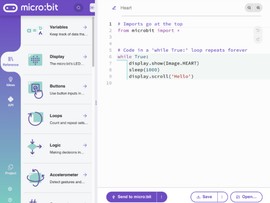Supporting science teaching with the micro:bit
Get ready for UNESCO's World Science Day on 10 November with BBC micro:bit's practical science investigations in class and outdoors, working with data and learning some core skills of scientific enquiry.
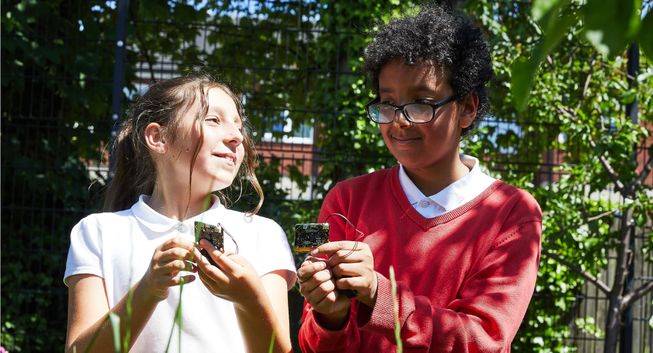
The power of practical science

…all pupils should experience an exciting, inspiring and relevant science education at school that leaves them well-prepared to progress further in science, and well-informed about science in their everyday lives.

The Wellcome Trust (2017)
Research shows that practical, hands-on science learning is more engaging for young learners, but it can be hard to plan and equip.
The micro:bit can help. This tiny computer is packed with sensors for sound, light, temperature, magnetism, movement and conductivity, and there are dozens of projects ready to go for classroom learning across many topics:
- General scientific skills of fair tests, data collection, observation over time, comparisons, predictions, interpretation and evaluation.
- Physics learning about electrical conductors, circuits, magnetism, light and sound.
- Biology topics investigating the effect of light and temperature on plant growth.
- Geography learning about climate, weather and using a compass to find your way.
- Maths skills for handling and visualising data.
Science professional development course
The new, free professional development course, 'Science exploration with the micro:bit' uses short videos and downloadable work sheets to enable you quickly to start using the micro:bit in practical science lessons.
Discover how you use the micro:bit, indoors and outside, to compare temperature, sound, light in different locations, test conductivity and sound insulation properties of different materials and log temperature and light levels over long periods of time.
You don't need to include coding when using the micro:bit in science lessons, you can use ready-made projects to log data and explore the world around you. Everything is included with the course, student worksheets and code ready to transfer direct to your micro:bits.
Quick science projects
If you want to try any of these practical science projects out straight away, try the Make it: code projects. Each comes with a short introduction and coding video, or you can download the project code and get using it straight away.
- Take instant readings of temperature, light and sound levels in different places around you.
- Test electrical conductivity of different materials.
- Explore which materials make better sound insulators.
- Use the micro:bit's data logging feature to record and analyse temperature and light levels over time, and visualise the data on a computer direct from a micro:bit.
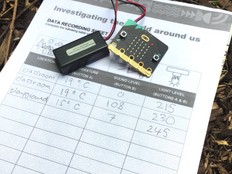
Measure temperature, sound and light levels around you
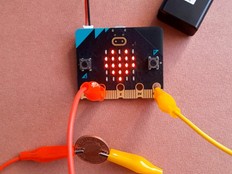
Investigate if a material conducts electricity.
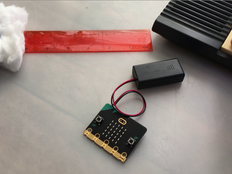
Test which materials are best sound insulators
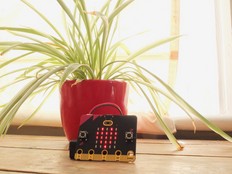
Record and study data about the world around you
Taking it further
There are over 40 science-related quick projects you can use or adapt in your classroom, including investigating sound and pitch, using the micro:bit's radio feature to make indoor-outdoor thermometers, and learning about how radio waves travel.
The micro:bit is a tiny computer that opens up a world of scientific investigation in the palms of your students' hands.
